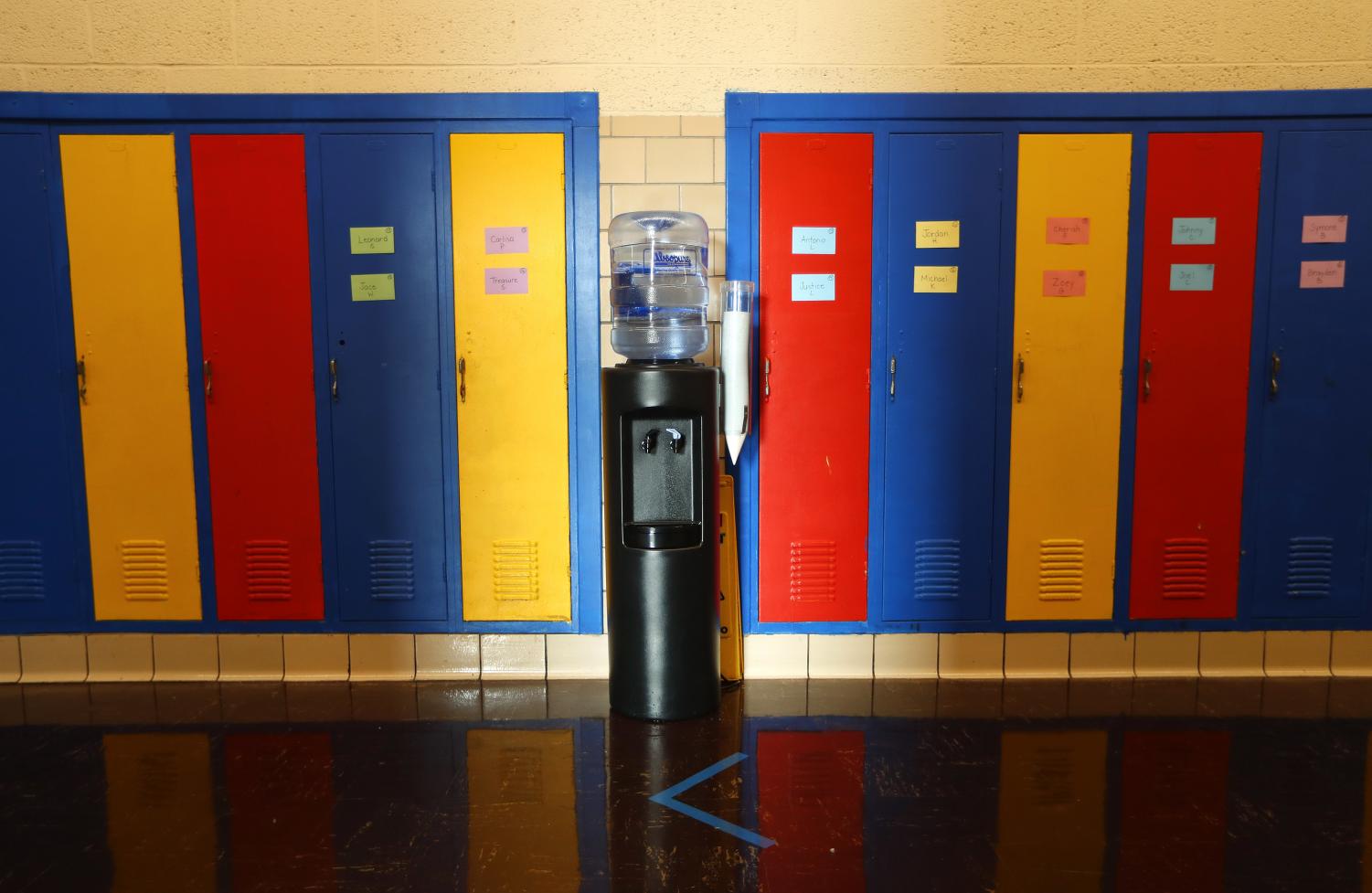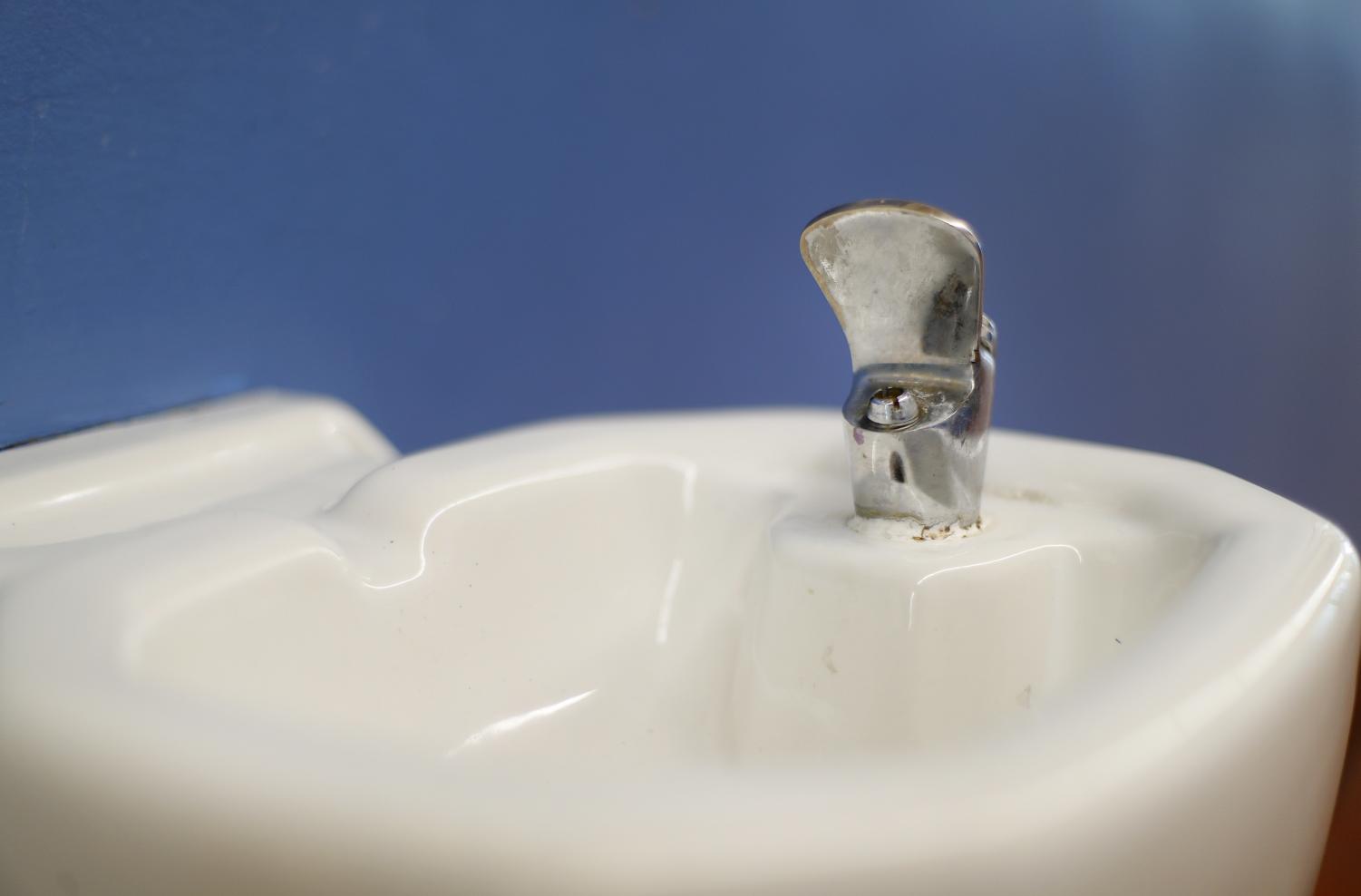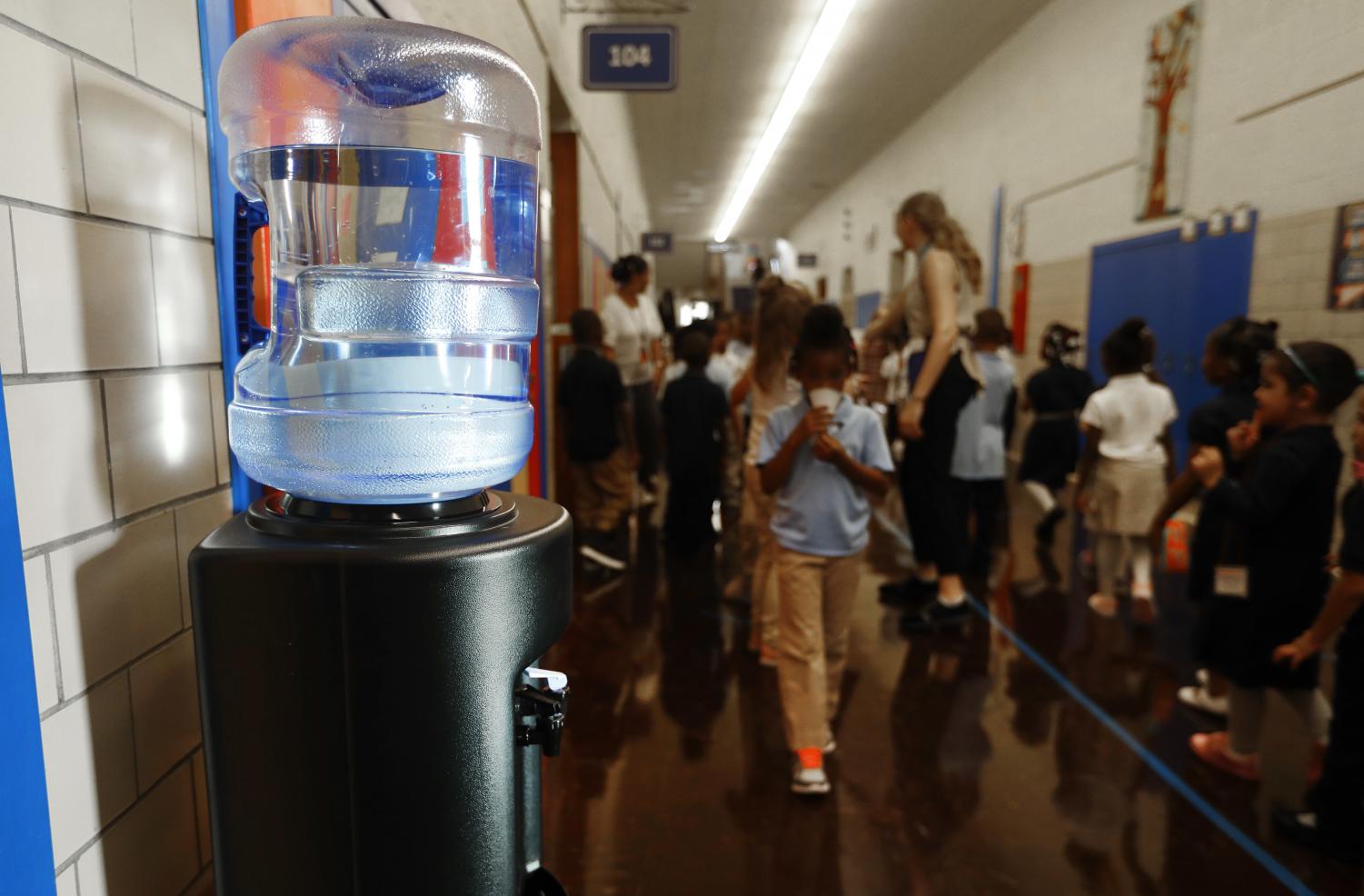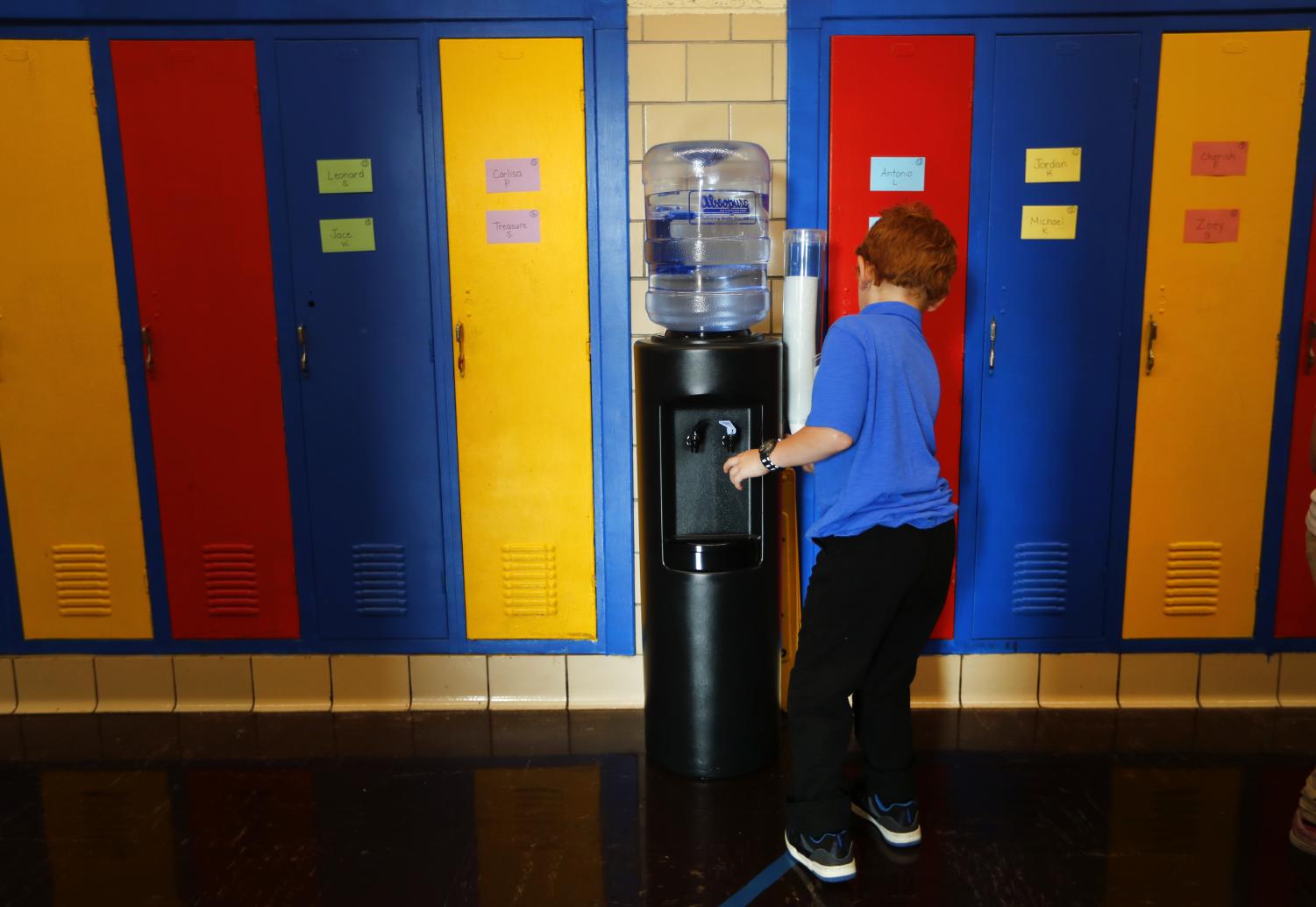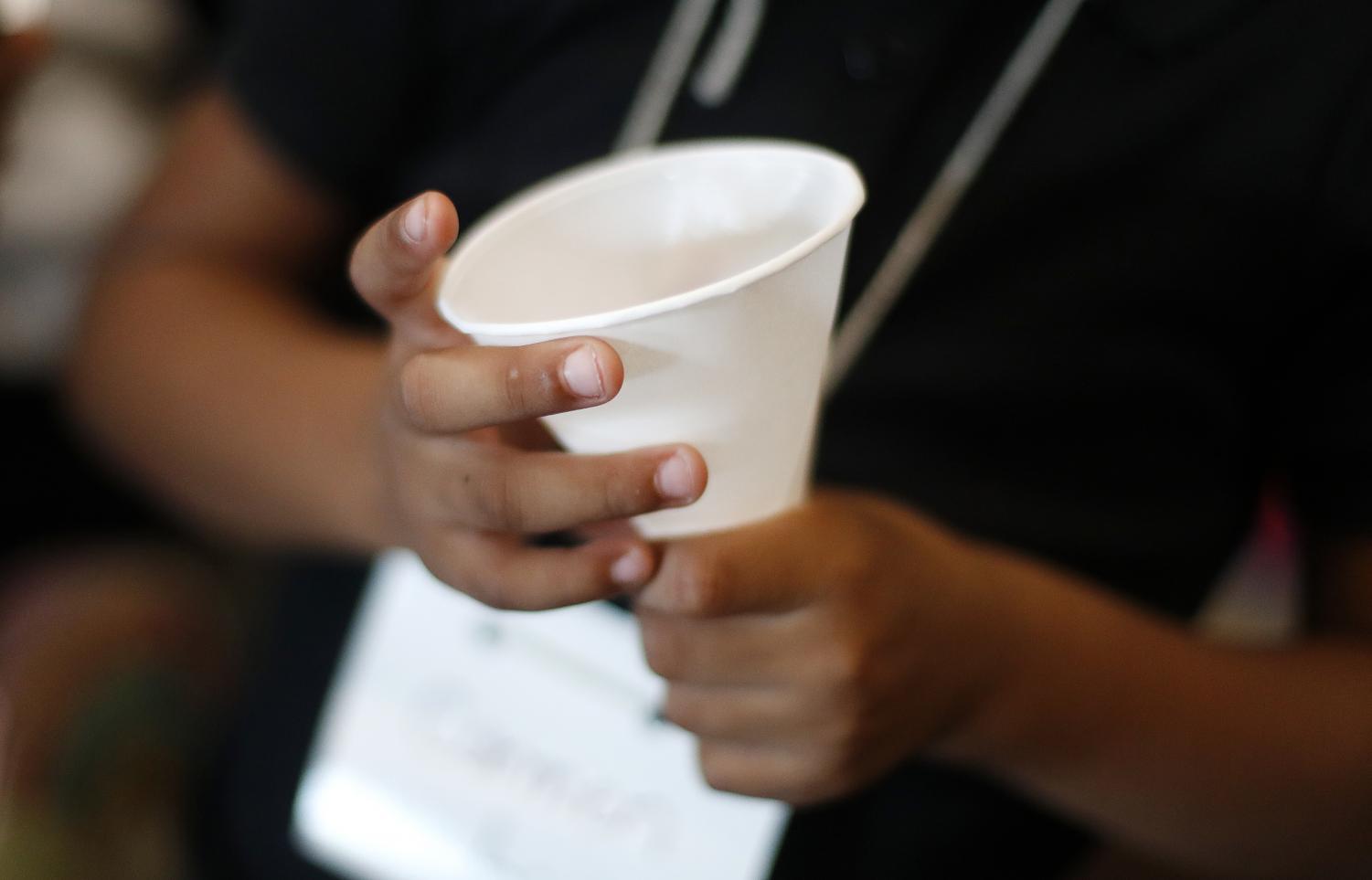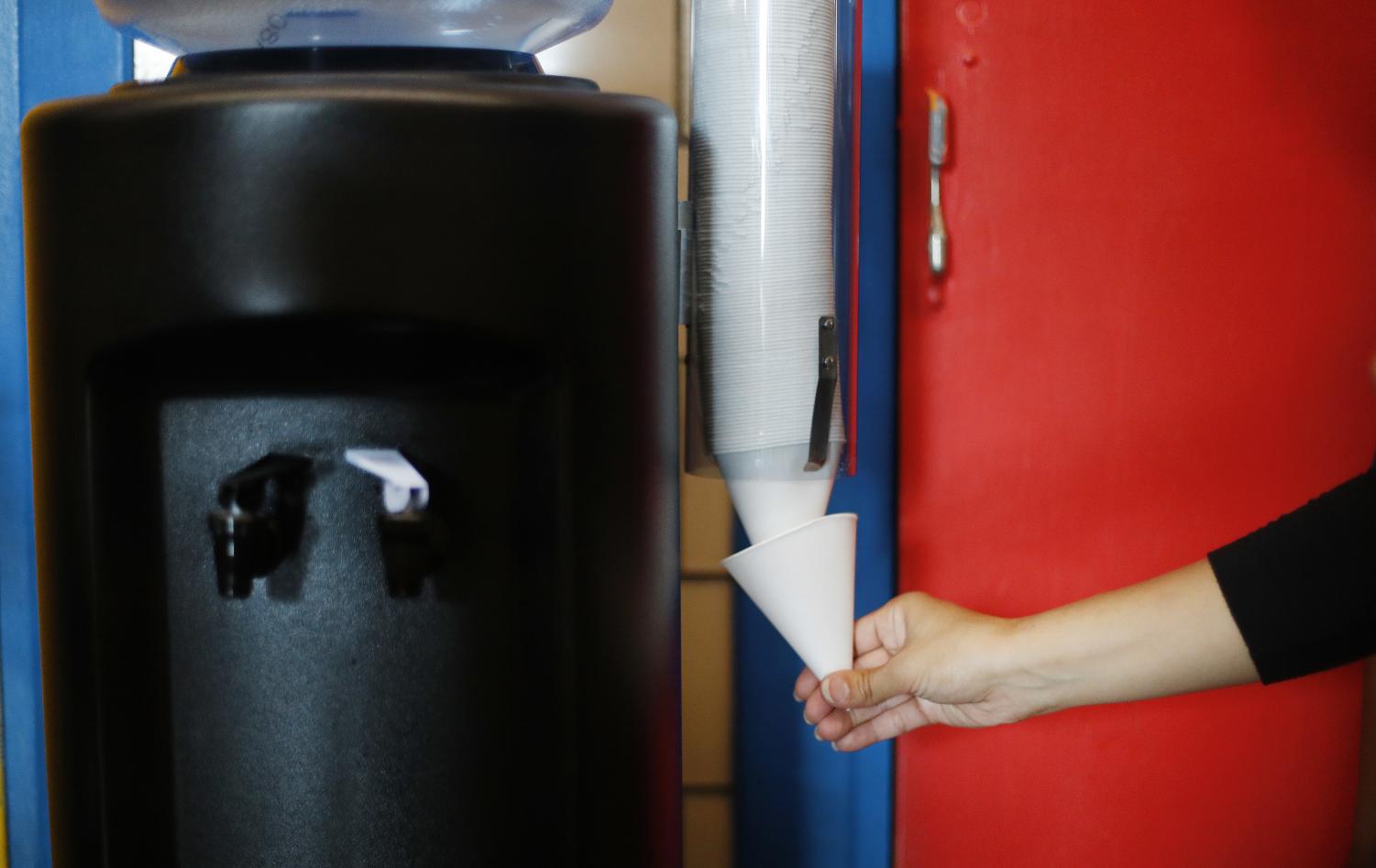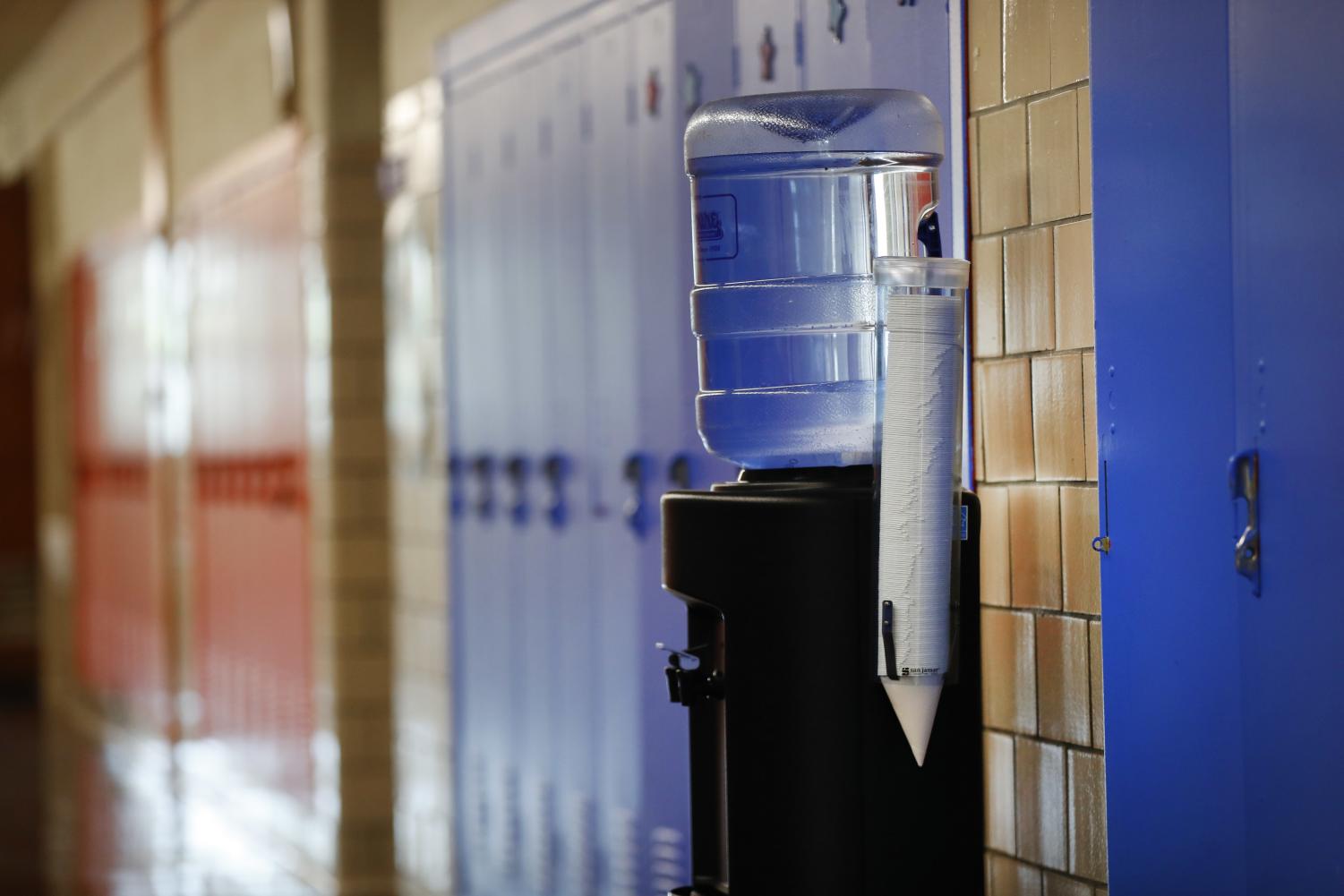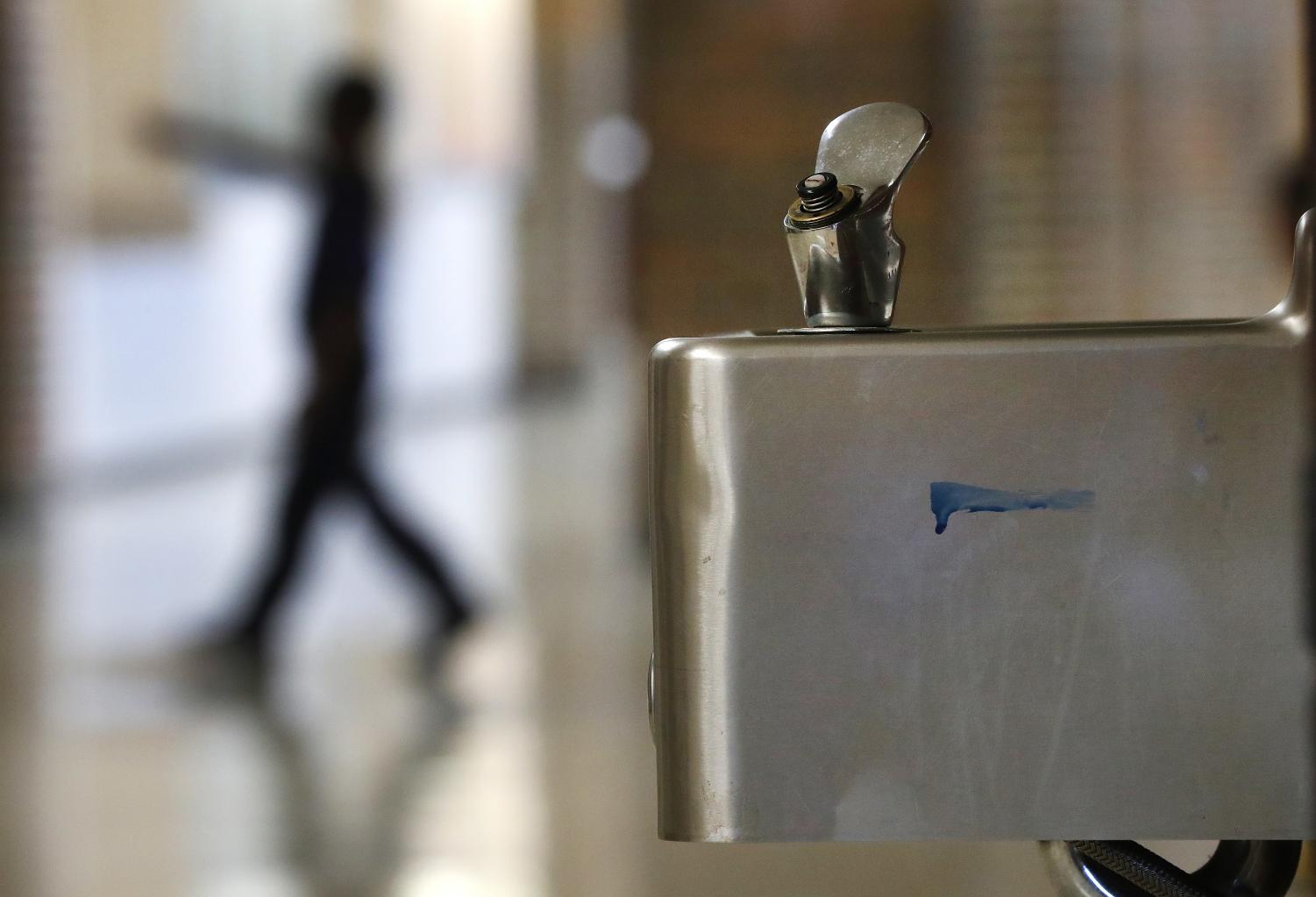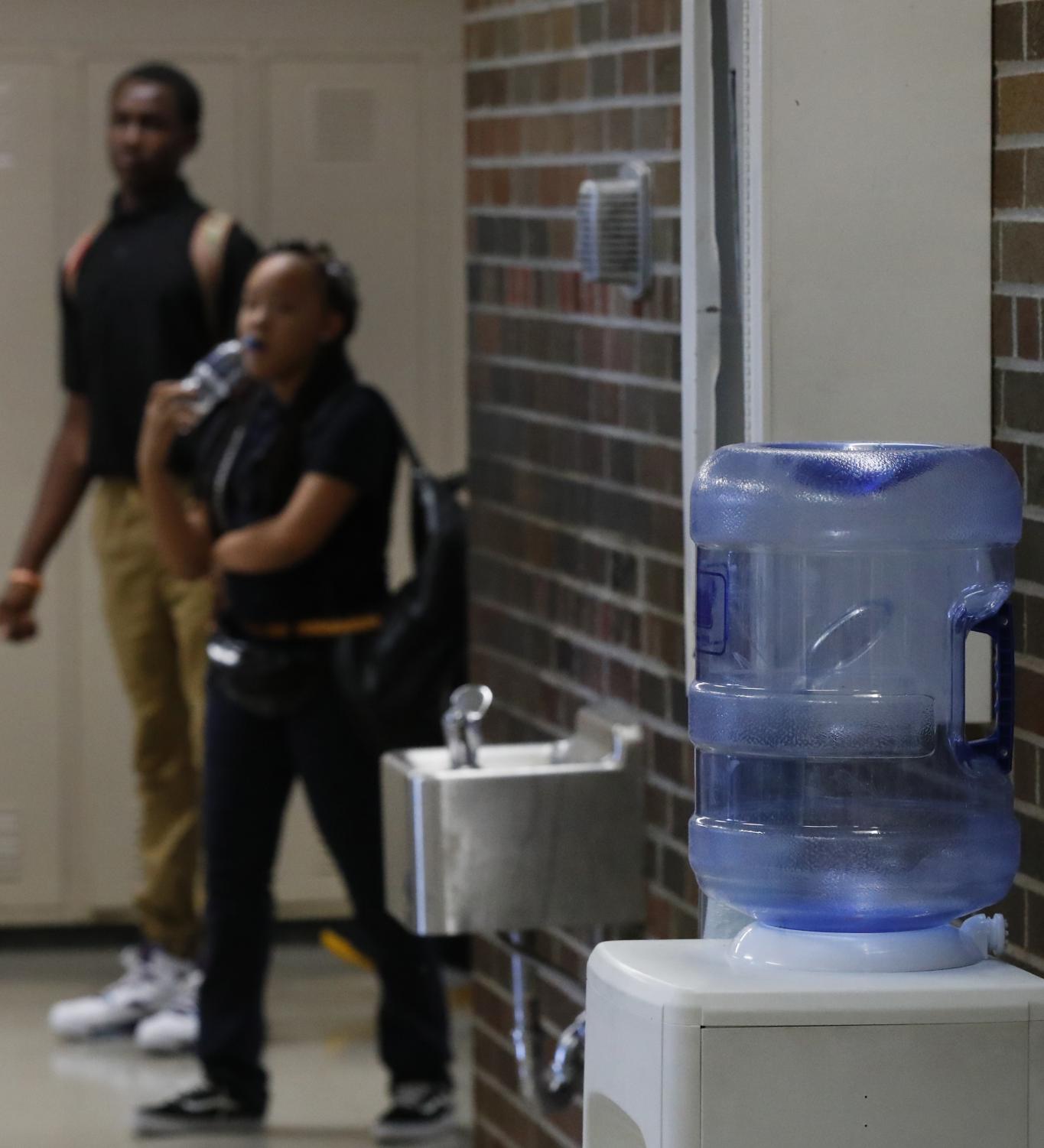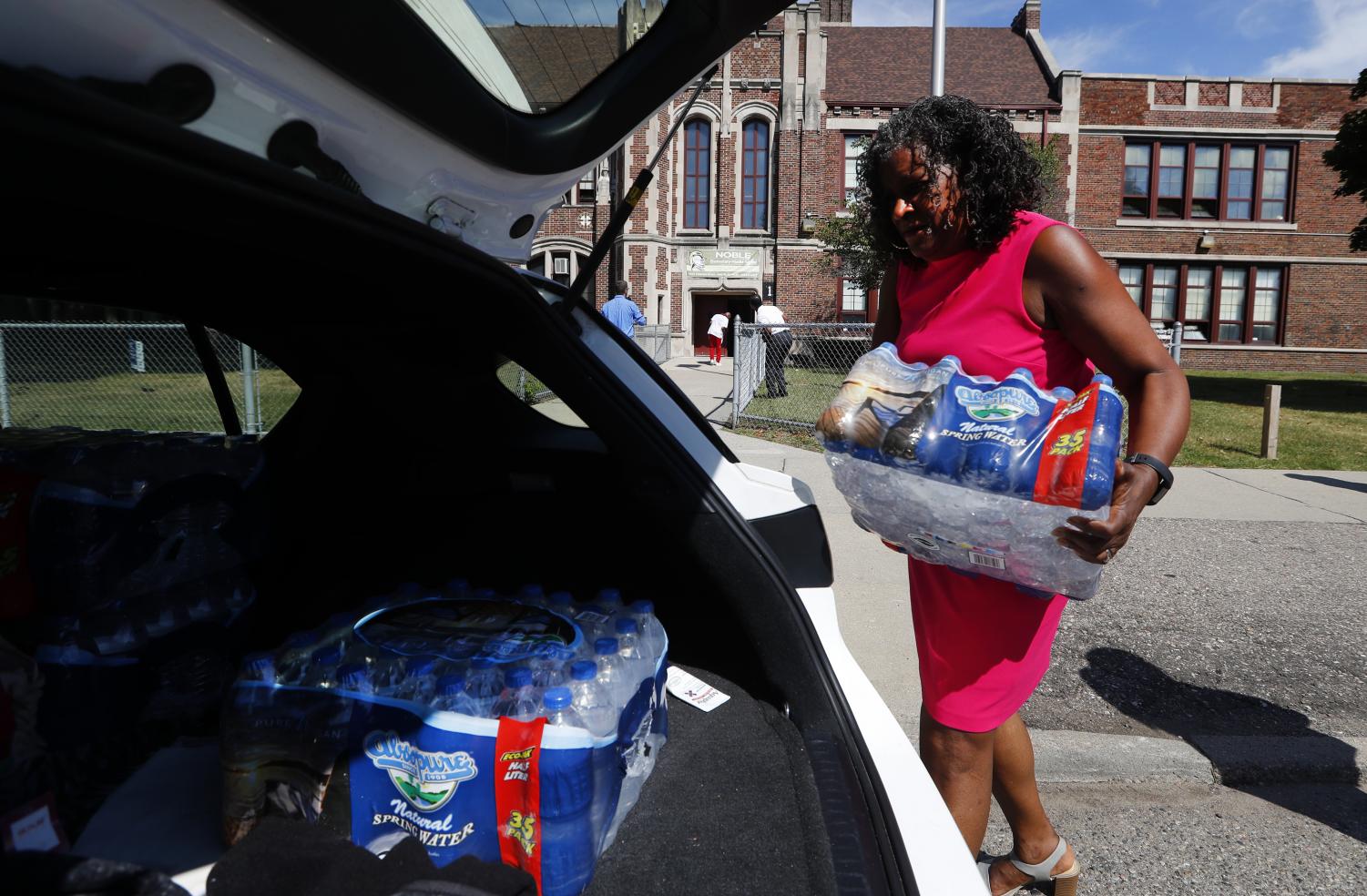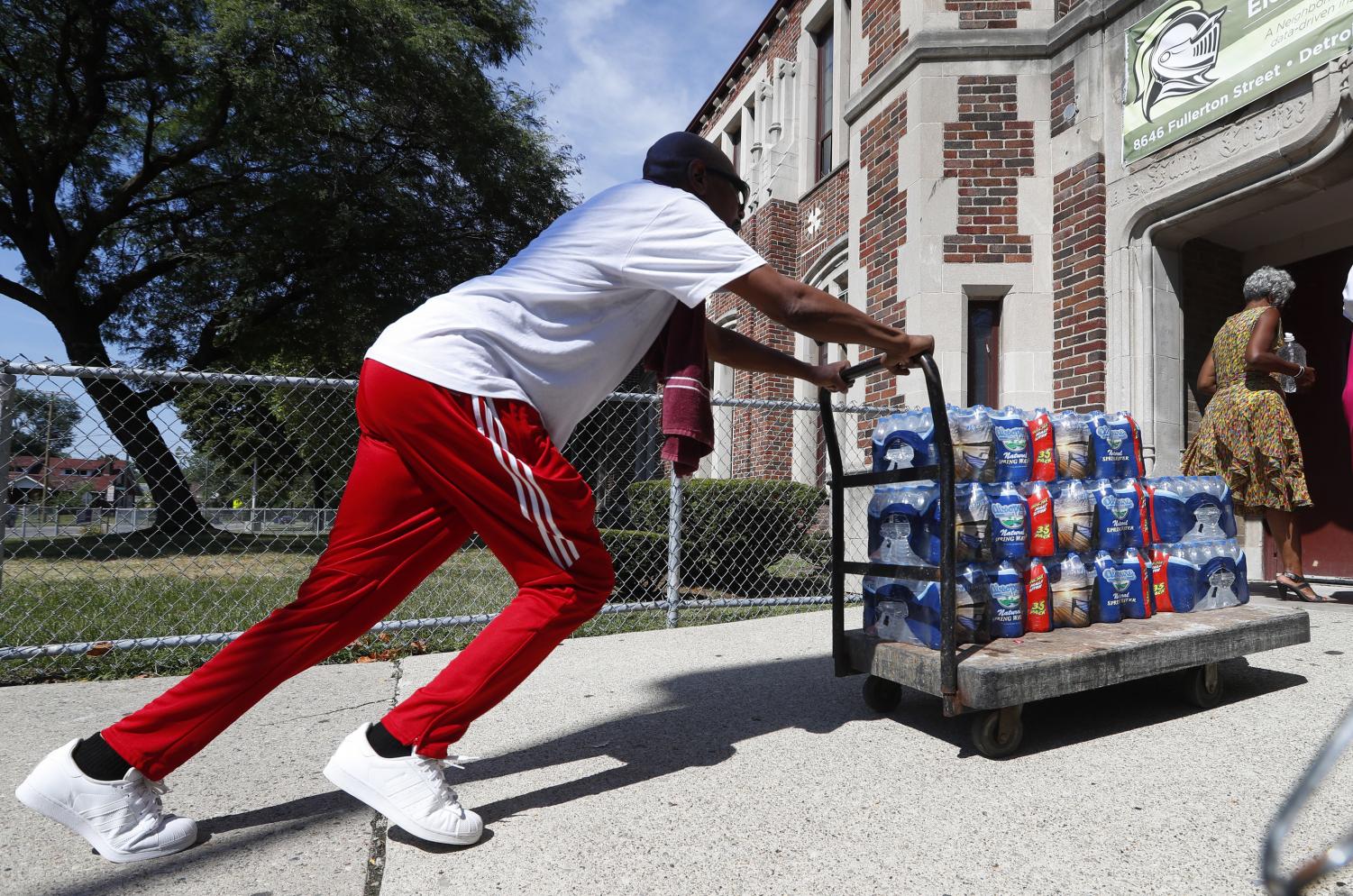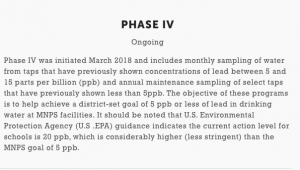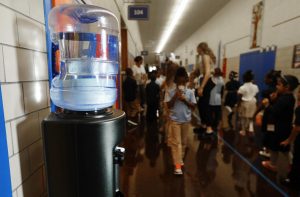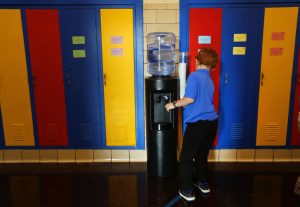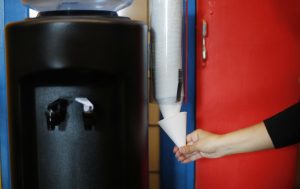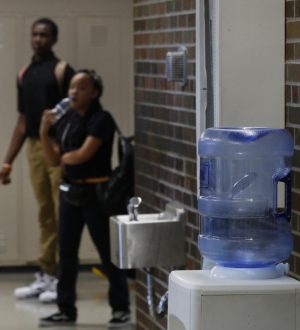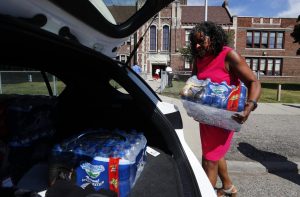Lead and copper levels in school drinking water leads Detroit schools to shut off all fountains
DETROIT (AP) — The lead contamination of water that is available to school children in Detroit has caused districts around the nation to conduct their own water testing for lead and copper. School districts that are older than 75 years old are particularly likely to have pipes and/faucets that have lost any protective coatings and can inadvertently leach lead into drinking fountains in schools.
Tuesday, as Detroit schools opened to thousands of public schools students, the students were told to drink from district-supplied water coolers or bottled water on the first day of classes, after the drinking fountains were shut off because of contaminants in some water fixtures.
Superintendent Nikolai Vitti said last week that elevated levels of lead or copper were found in fixtures at 34 schools. Test results are pending for other schools.
Metro Nashville Public Schools have had entered Phase IV of the district’s water testing plan. The most recent report from April 2018 can be viewed here.
The discovery of contaminated water in Detroit’s schools follows a lead-tainted water crisis in Flint, Michigan.
In 2014 and 2015, Flint didn’t properly treat corrosive water that was pulled from the Flint River. As a result, lead in old pipes contaminated the water going into homes and businesses, and it streamed from household taps as a brown and smelly fluid.
Some children in the city were subsequently found to have elevated levels of lead in their blood, which can lead to developmental delays and other health problems.
Eager to not undergo the same health and financial fallout as Flint, officials decided no students at Detroit’s 106 public schools should be subjected to drinking mains water until a solution can be found and the water declared safe. School officials believe old fixtures, not the water source, may be to blame.
What levels of lead is safe in drinking water? The Center of Disease Control and Protection states “No safe blood lead level in children has been identified. Even low levels of lead in blood have been shown to affect IQ, ability to pay attention, and academic achievement. And effects of lead exposure cannot be corrected.” This recommendation changed in 2012.
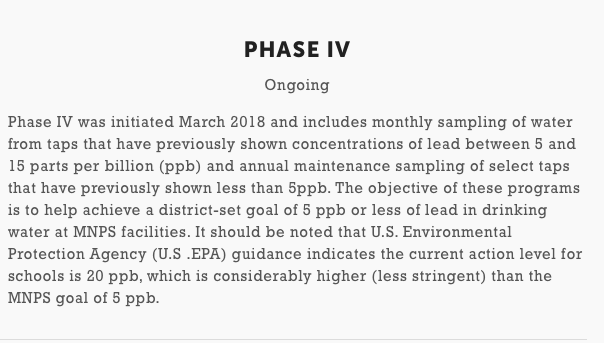
Vitti said the cost of the coolers and bottled water will be $200,000 over two months. He’s looking at developing a long-term plan for new central water stations at every school with independent piping systems, Vitti said.
But as parent Quala (KWAY’-luh) Bennett dropped two children off at Gardner Elementary Tuesday, she wondered why the district only recently began testing its water.
Metro Nashville Public School’s website explains that it has begun a voluntary water testing program. “In 2016, Metro Nashville Public Schools (MNPS) embarked on an ambitious, first-ever, voluntary water testing program in the wake of the lead crisis in Flint, MI and other areas of the country. We wanted to make sure water in our schools is safe for students and staff.”
What began as a two-year, two-phase water quality testing program at MNPS, has now expanded into a dynamic and comprehensive water quality testing and remediation program encompassing installation of new water fixtures, replacement of water lines, quarterly random water quality testing, monthly maintenance testing and flushing water lines after long breaks.
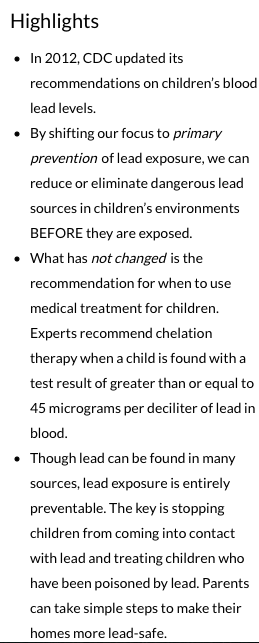
In March 2018, MNPS Superintendent, Dr. Shawn Joseph released a statement. ““Our goal as a school district is to ensure that our schools’ drinking water is safe. As a parent of two Metro Schools children and as the Director of Schools, the idea that a supervisor would discuss a workaround on our water fountains knowing that this is a huge concern for many families is upsetting and unacceptable. We place the health and safety of our students above all else. We are investigating and will follow up with our maintenance staff to ensure no water outlets have been modified. I have already reached out to the principal of West End MS, School Board Leadership, the PTO President, and the concerned parent who raised this concern to answer any questions and provide information. We will continue to proactively and voluntarily test for lead and monitor our drinking water in schools.”
However, the way in which lead levels are tested in MNPS is controversial. On August 7, 2018, Mayor David Briley announced that Davidson County will no longer use a “pre-stagnation flush” water samples protocol. Flushing the night before is not considered a reliable method to collect accurate levels of lead.
A top expert from the Flint, Michigan, water crisis told that the method being discontinued provides test results “that are junk. You know, you’ve got to applaud people for doing the testing, but frankly those results need to be thrown right in the garbage,” said Professor Marc Edwards of Virginia Tech.
Marc Edwards is one of the leading scientists consulted by the Nashville Mayor’s office. “What we did was make sure everybody understood what the best science is on this front, to make sure that we were testing in a way that was going to get an appropriate reading of what a child might be exposed to if they walked into the school and drank from the fountain,” Briley explained.
The new plan supported by Briley calls for random sampling of 10 percent of all drinking and food prep outlets every year. The target level considered safe will still be a lead level of 5 parts per billion or lower. That’s the same standard that the Food and Drug Administration has set for bottled water.
“We feel like it’s going to be very protective, more protective than what the state is going to require,” the mayor added.


